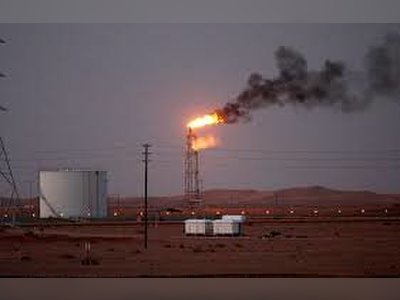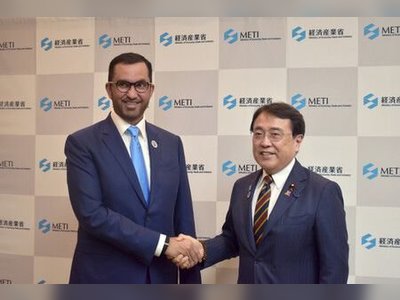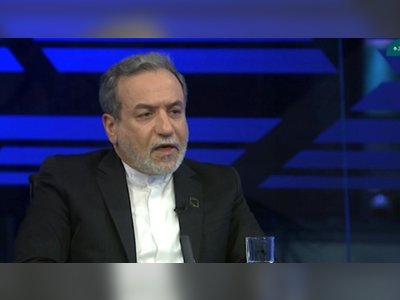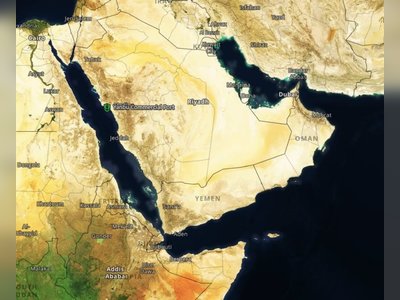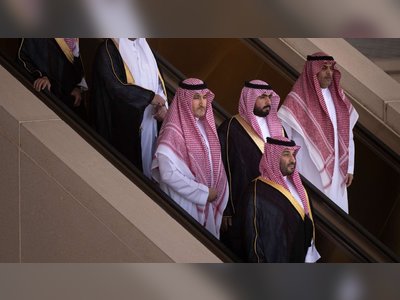
UK forms nuclear alliance designed to edge Russia out of international market
The UK was among five G7 members to join the alliance to share nuclear power fuel supply chains. Fellow member Germany has just completed its ditching of nuclear fuel. The G7 climate and energy ministers were criticised for leaving the door open to further fossil fuel financing.
Five of the world's largest economies are hoping to undermine Russia's grip on nuclear power supplies by shutting it out of a new alliance.
The alliance, formed by the UK, US, Canada, Japan and France during the G7 meeting over the weekend, will develop shared supply chains for nuclear fuel.
The five G7 members aim to push Russia out of the international nuclear energy market and cut off funding for its invasion of Ukraine, the UK's Department for Energy Security and Net Zero said.
Energy Security Secretary Grant Shapps called the announcement the "next vital step" in efforts to defeat Vladimir Putin and ensure no one "can ever think they can hold the world to ransom over their energy again".
The agreement will also strengthen the UK's nuclear energy sector, helping it on the path to energy independence and reducing electricity bills, his department said.
The fuel is used to operate nuclear power stations which provide around 15% of the UK's electricity supply, with an aim for it to reach 25% by 2050.
Meanwhile fellow G7 member Germany last week closed the last of its remaining nuclear reactors, completing a plan driven by the Fukushima nuclear disaster in Japan in 2011.
Ministers from the Group of Seven rich nations were finishing two days of meetings on climate, energy and environmental policy on Sunday.
They set big new targets for solar power and offshore wind capacity, agreeing to speed up renewable energy development and move towards a quicker phase-out of fossil fuels.
"We stress that fossil fuel subsidies are inconsistent with the goals of the Paris Agreement," a statement read.
And they underlined a commitment to "accelerate the phase-out of unabated fossil fuels so as to achieve net zero in energy systems by 2050 at the latest".
They were accused of falsely claiming they had ended fossil fuel finance, while actually leaving the door open for gas investments.
The G7 climate and energy ministers said: "Investment in the gas sector can be appropriate to help address potential market shortfalls provoked by the crisis, subject to clearly defined national circumstances, and if implemented in a manner consistent with our climate objectives and without creating lock-in effects."
Louise Burrows, from thinktank E3G, called it "concerning to see the G7 claim they have ended international fossil fuel finance, when multiple fossil fuel projects are still being actively pursued by over half the group, and Japan and Germany are yet to adopt new fossil finance policies.
"To be taken seriously, the G7 must follow the UK's lead and implement this commitment with integrity," she said.
The world's leading energy agency, the International Energy Agency's (IEA) says no new gas fields or liquefied natural gas (LNG) infrastructure is compatible with the global goal to limit warming to 1.5°C above pre-industrial levels.
They also stopped short of a target to make the power sector "fully fossil free" by 2035, instead "[reaffirming] our
commitment to achieving a fully or predominantly decarbonized power sector by 2035".
Hiroki Osada, campaigner at Friends of the Earth Japan, said: "Nothing can justify new investment in fossil fuels, and no exceptions can be allowed.
"Japan should immediately end international financial support to fossil fuels in line with its G7 commitment, and should also commit to a complete phase-out from coal by 2030."
The alliance, formed by the UK, US, Canada, Japan and France during the G7 meeting over the weekend, will develop shared supply chains for nuclear fuel.
The five G7 members aim to push Russia out of the international nuclear energy market and cut off funding for its invasion of Ukraine, the UK's Department for Energy Security and Net Zero said.
Energy Security Secretary Grant Shapps called the announcement the "next vital step" in efforts to defeat Vladimir Putin and ensure no one "can ever think they can hold the world to ransom over their energy again".
The agreement will also strengthen the UK's nuclear energy sector, helping it on the path to energy independence and reducing electricity bills, his department said.
The fuel is used to operate nuclear power stations which provide around 15% of the UK's electricity supply, with an aim for it to reach 25% by 2050.
Meanwhile fellow G7 member Germany last week closed the last of its remaining nuclear reactors, completing a plan driven by the Fukushima nuclear disaster in Japan in 2011.
Ministers from the Group of Seven rich nations were finishing two days of meetings on climate, energy and environmental policy on Sunday.
They set big new targets for solar power and offshore wind capacity, agreeing to speed up renewable energy development and move towards a quicker phase-out of fossil fuels.
"We stress that fossil fuel subsidies are inconsistent with the goals of the Paris Agreement," a statement read.
And they underlined a commitment to "accelerate the phase-out of unabated fossil fuels so as to achieve net zero in energy systems by 2050 at the latest".
They were accused of falsely claiming they had ended fossil fuel finance, while actually leaving the door open for gas investments.
The G7 climate and energy ministers said: "Investment in the gas sector can be appropriate to help address potential market shortfalls provoked by the crisis, subject to clearly defined national circumstances, and if implemented in a manner consistent with our climate objectives and without creating lock-in effects."
Louise Burrows, from thinktank E3G, called it "concerning to see the G7 claim they have ended international fossil fuel finance, when multiple fossil fuel projects are still being actively pursued by over half the group, and Japan and Germany are yet to adopt new fossil finance policies.
"To be taken seriously, the G7 must follow the UK's lead and implement this commitment with integrity," she said.
The world's leading energy agency, the International Energy Agency's (IEA) says no new gas fields or liquefied natural gas (LNG) infrastructure is compatible with the global goal to limit warming to 1.5°C above pre-industrial levels.
They also stopped short of a target to make the power sector "fully fossil free" by 2035, instead "[reaffirming] our
commitment to achieving a fully or predominantly decarbonized power sector by 2035".
Hiroki Osada, campaigner at Friends of the Earth Japan, said: "Nothing can justify new investment in fossil fuels, and no exceptions can be allowed.
"Japan should immediately end international financial support to fossil fuels in line with its G7 commitment, and should also commit to a complete phase-out from coal by 2030."
